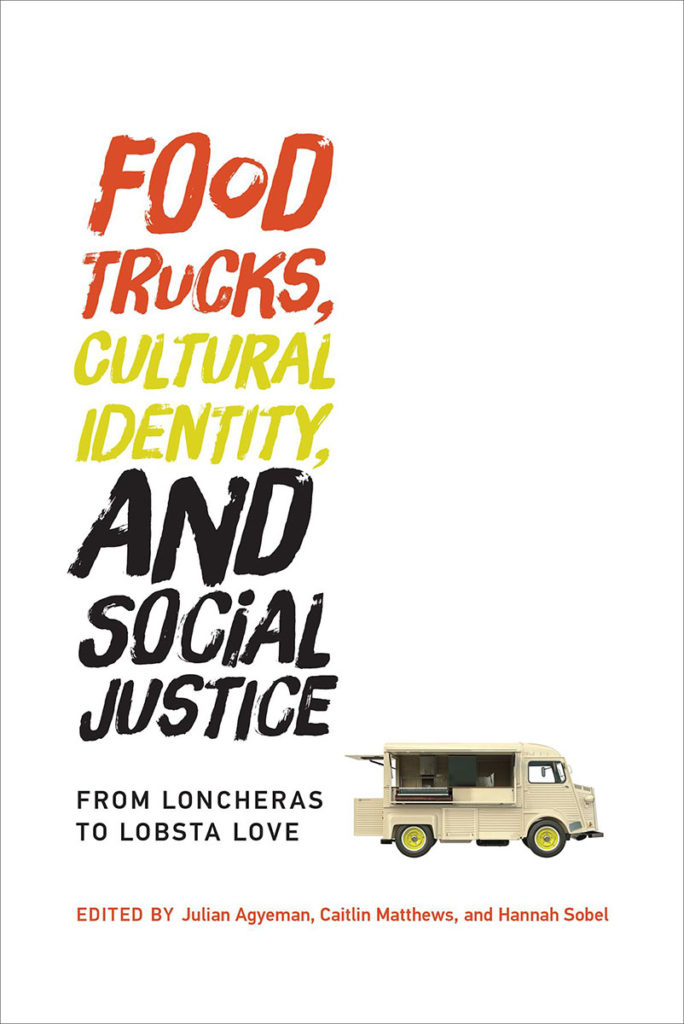Food Trucks, Cultural Identity, and Social Justice: From Loncheras to Lobsta Love
 Published by: The MIT Press
Published by: The MIT PressRelease Date: September 8, 2017
Pages: 344
ISBN13: 978-0262534079
Buy the Book: Amazon, Barnes & Noble, IndieBound, Books-A-Million, The MIT Press, Apple Books
Overview
The food truck on the corner could be a brightly painted old-style lonchera offering tacos or an upscale mobile vendor serving lobster rolls. Customers range from gastro-tourists to construction workers, all eager for food that is delicious, authentic, and relatively inexpensive. Although some cities that host food trucks encourage their proliferation, others throw up regulatory roadblocks. This book examines the food truck phenomenon in North American cities from Los Angeles to Montreal, taking a novel perspective: social justice. It considers the motivating factors behind a city’s promotion or restriction of mobile food vending, and how these motivations might connect to or impede broad goals of social justice.
The contributors investigate the discriminatory implementation of rules, with gentrified hipsters often receiving preferential treatment over traditional immigrants; food trucks as part of community economic development; and food trucks’ role in cultural identity formation. They describe, among other things, mobile food vending in Portland, Oregon, where relaxed permitting encourages street food; the criminalization of food trucks by Los Angeles and New York City health codes; food as cultural currency in Montreal; social and spatial bifurcation of food trucks in Chicago and Durham, North Carolina; and food trucks as a part of Vancouver, Canada’s, self-branding as the “Greenest City.”
Reviews
“The greatest strength of this book is its use of food trucks as a lens through which to analyze the racialized political economies of changing foodscapes. The historical connections between immigrant food vendors and creative-class entrepreneurs, and their differential treatment by city officials, are resoundingly clear, as are the abilities of non-profit organizations, community development corporations, and vendors themselves to mitigate and resist these disparities.”
—Alison Hope Alkon, Department of Sociology, University of the Pacific